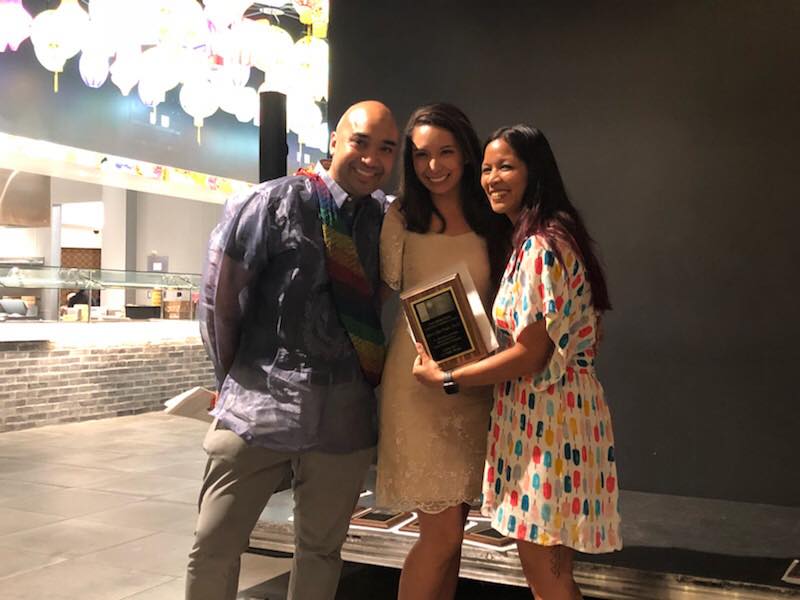Healing Through Creative Expression
Healing Through Creative Expression
Chetna Mehta, a 2017 graduate of the Wright Institute's Master's in Counseling Psychology program, has combined her passions for art, spirituality and psychology to devise a personalized style of healing.
"I call myself a mystic because I am spiritual in my approach to mental health," Chetna explained. "I am a mixed-media artist, so I founded a brand that incorporates affirmation, spiritual study and evidence-based psychological techniques to create sacred spaces for creative and community-oriented healing."
While attending the Wright Institute, Chetna started crafting affirmations for herself to help manage the stress of graduate school and the recent presidential election. "I would draw visual affirmations to tell myself what I longed to hear. As I shared these art pieces, I learned that they resonated with people," Chetna said, adding that she started a product line of cards with these visual affirmations.


